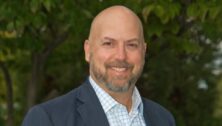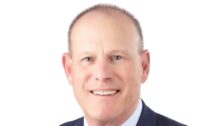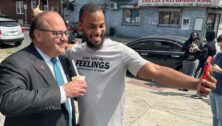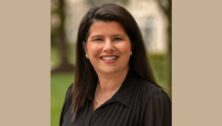Philadelphia Leadership: Natalie Chesko, President, Aqua New Jersey
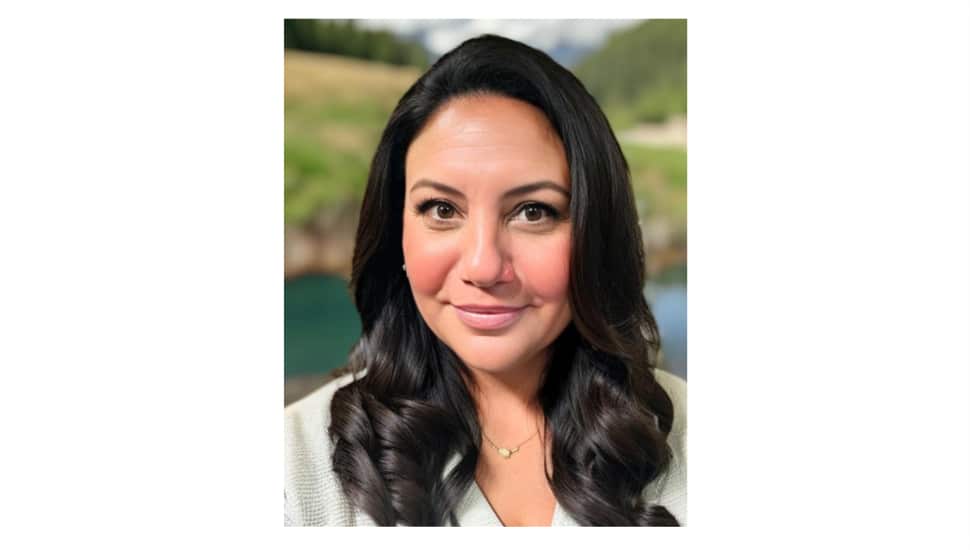
Natalie Chesko, President of Aqua New Jersey, spoke with PHILADELPHIA Today about growing up near the beach in New Jersey, her love of ballet as a child and teenager, and running cross-country in high school. She also recalled her first job at a bakery, where she learned discipline and teamwork and formed intergenerational friendships.
Chesko graduated from Rutgers University with a degree in Bioresource Engineering, which gave her a new mindset and new experiences. She also discussed the mentors who shaped her career and Aqua New Jersey’s efforts to make the water supply safer by treating PFAS and removing lead pipes.
Where were you born, and where did you grow up?
I was born and raised in Forked River, which is in Ocean County, New Jersey. We grew up fairly close to the beach, so I have very fond memories. We would spend all summer there. We would dive through the crashing waves, and then we would go to the boardwalk and ride the rides, play games, and have pizza and fries.
What did your parents do?
My parents both worked for the nuclear power plant. My mom was the secretary to the site Vice President, and my dad worked in QA/QC.
Where were you in the pecking order?
I’m the middle child. There’s three of us, and it’s all girls.
And what was your role?
I would say I am the peacekeeper. My older sister is just brilliant. She was always face-in-a-book, very level-headed. I was the glue for the two of them. My older sister and I are five years apart. My younger sister and I are three years apart. I’m the person who brings everyone together and makes sure we all meet up.
What memories do you have of growing up in Ocean County?
Being in Forked River, we had our pick of beaches. We’re only 20 minutes away from Seaside Heights and 20 minutes away from Long Beach Island. Depending on what you wanted to do for the day, that’s the way you went. Even where I currently live, it’s only three miles from the bay.
So, we were always by the water in some way, shape, or form. We definitely frequented the beach in the summertime — diving through the waves, roasting on the sand, and making sandcastles. They were wonderful memories, and I incorporate it still with my kids today. We’re definitely beach people.
Did you play any sports when you were younger?
I actually was a ballerina for about 20 years. I started when I was three, and I carried it through until I was about 22. I loved it. I loved the classical music. It’s so moving. It has so much passion in it. I loved the structure of ballet and how it was a very disciplined art, but beautiful at the same time. You get what you put into it.
When I was in high school, they didn’t have a ballet team, so I was a runner. I got really into cross-country and track and formed a lot of good friendships through it. I ran distance. I loved cross-country and saying, “I’m going to go do 10 miles today.” You have a clear head and get through your thoughts. It’s just you versus the road.
Do you have a favorite meet that you remember?
It’s a funny memory: It was a state championship race, and as I was coming down the lane, everyone who was cheering me on was on the other side of the fence. I remember plowing through and crossing that finish line. I came in third, and the group that came to cheer me on was climbing the fence and jumping over so that they could come to congratulate me.
Did you have any part-time jobs growing up?
My first job was when I was a sophomore in high school and worked at a local bakery. I worked there through my senior year, and when I went to college, I would come back on breaks.
It took a lot of discipline. A bakery starts before the doors open. You have a lot of people who are dependent on you being there to get the oven started, get all the items prepped, the boxes ready, and orders filled.
This was before Walmart and ShopRites had a bakery section, so the local bakery was the place that everybody came to. You were incredibly busy, but I worked with wonderful people.
It was such a great time because here I was, 15 years old, and I was working with women who were in their 30s, 40s, and 50s. I was able to create friendships with them and have lessons that I learned from them. It is one of the fondest memories I have: working at that bakery.
What lessons did you take from working there that still influence how you work today?
A team mindset. The same thing applies today; everybody in your team is dependent upon one another. If one person’s slacking, the others have to help bring up the rest of the team, and if you have a deadline, you have to meet it.
You can’t promise people the world, but you have to be able to come to fruition. Those concepts definitely applied there: be early, show up, be ready.
What kind of music floated your boat in high school and college?
At the time, it was the grunge and alternative scene. I was into Nirvana, Pearl Jam, Radiohead, and Tori Amos. She was definitely an influence in my life.
Where did you end up going to college? Why there?
I went to Rutgers University in New Brunswick, and for me, it was a great fit. I had looked around, all the way up to Maine and all the way down to Florida, and although I saw a lot of schools that seemed fantastic, Rutgers seemed like the best fit. I came from a very small high school, and I was looking for something big. I wanted people. I wanted experiences. I wanted to be traveling.
I wanted to have a new mindset and a new experience, and Rutgers gave me that. I was able to travel from campus to campus and take a class here and take a class there. Every campus is completely different from the other. In the end, I really enjoyed my experience there.
What made your experience at Rutgers so enjoyable?
The major that I was in probably was a big influence. I was in Bioresource Engineering, which was a five-year program. Your first two years were at Cook College, where you got your Environmental degree, and then the last three years were over at Bush Campus, where you got your Civil Engineering degree.
It was an advanced program, but I was able to have the Cook College side, where it’s very green, earthy, and biology-based. During freshman and sophomore years, you had large lectures with 150 or 200 people, which I loved, and then the rest of the program was much smaller. You had a classroom of 15 to 20, where you had that one-on-one time, and you were able to have your questions from the lecture answered. I loved that ability to have something large but intimate at the same time.
When you come out of college, who saw promise in you, opened up doors, and gave you opportunities?
That was Imthiaz Azeez, the first supervisor that I ever had coming out of college. I worked for Schweitzer Mauduit, and the Engineering Manager was my supervisor. He was such a wonderful mentor. He gave me the best advice in my career that I have held on to from that day forward.
He used to tell me all the time, “You’re a female in a male-dominated world. Never forget that you’re capable.” He dragged me along everywhere and anywhere, saying, “If we’re going to this meeting, you’re coming with me,” and “If I’m going to this site, you’re coming with me.” He made sure that I was integrated and learned aspects of the industry.
What do you think he saw in you?
I still have some of the same qualities I did 25 years ago. At the time, I was young and hungry. I was dying to get my hands dirty and get into this industry, make my name, and put my stamp on this world. Anything he threw at me, I was willing to take. I think he saw that energy and enthusiasm.
Who else saw promise in you?
I had another wonderful mentor, Steve Schreiber, when I was at T&M Associates, which is a consulting engineering firm. Again, I had come in my box, if you will, that I was supposed to fill, and he quickly saw that I was pushing open that box and bursting out of it.
He would bring me in and say, “You’re not just going to work on a project, you’re going to head a project.” He saw the managerial side in me, even before I knew I had it.
Here we are, almost halfway through 2024. What challenges and priorities are you focused on?
Here at Aqua, we have a lot of the challenges that many people in our field are facing. The most prominent is PFAS. These are those forever chemicals that were created back when Teflon was the new and great thing. They call them forever chemicals because they’re hard to remove. They’re in the air, the soil, and the water. It’s our business to make sure that we take them out and make sure everyone’s safe.
We recently implemented an ion exchange unit to treat PFAS at our Green Avenue station. We had a ribbon cutting for it as well. We made it a big ceremony because this is a big thing right now. We want to make sure that all of our customers are drinking the safest and cleanest water that we can possibly put out there.
We have 26 others that we’re planning on doing this PFAS treatment. It’s costly, but the cost doesn’t matter. This is necessary and needs to be done. The EPA has given us a five-year deadline to get this done. And we’re striving to get it done in less than that.
Interesting. What else are you focused on?
We’re also looking towards lead service line replacements. That’s another big thing that’s on all of our radars. We’re moving quite quickly with that and getting a lot of replacements done and again, ensuring that our public is healthy and safe. This is a number one priority for us.
What do you do with all your free time, Natalie?
I have two teenage boys. When they’re not dragging me all over the state for volleyball and soccer, practices and games and matches, we’re either at the beach or I’ve taken up gardening in the last couple of years.
I have a flower garden in front of my house. And in the back last year, my boys and I constructed a garden with raised flower beds. We put in tons of lettuce, tomatoes, peppers, and sweet potatoes. We really got into it last year. My younger son has a green thumb. He loves tending to the garden, so that’s our bonding time.
Three final questions for you, Natalie. What’s something big that you’ve changed your mind about over the last 10 or 15 years?
For me, it’s a mindset that’s changed. When we’re younger, I think we want everything to be perfect. As we get older, we realize not everything is perfect. I’ve adapted to that idea over the last five years, where I’m not so hard on myself for things not being perfect. I tell myself, “This too shall pass. I can pick up where I’ve left off. Things will come to fruition if I give it care and love.” I give myself more grace than I probably would have when I was much younger.
What caused you to shift your perspective? Was it an evolution or was there an event?
I wouldn’t say that there was a particular event. It was an evolution, especially through achieving managerial positions. When you’re a manager, you have to be able to pivot at all times for everyone and everything. Sometimes we have days that are just crazy and everything that we had thought that day that we were going to get done — now nothing’s gotten done. You can’t beat yourself up about it. You have to find the wins where you find wins.
What keeps you hopeful and optimistic, Natalie? It’s a crazy world out there.
It is. What keeps me hopeful and optimistic is looking at my two boys. I’ve raised two great kids. I’m pretty proud of them. When I look at them and I hear their ideas and when we talk about what they plan on doing when they grow up — that gives me hope for this world because they definitely want to change things. Both of them have a mindset of helping people or just making things easier for this world where we can navigate it a little better.
Finally, and you alluded to this earlier, what’s the best advice you’ve ever received?
My first supervisor when I was at Kimberly-Clark gave me the best piece of advice, and I’ve carried it through. His advice was, “Get to know everyone.” And he’s 100 percent right. I remember when we would walk through the plant. He’d be saying, “Hey, George,” and “Hey, John.” He knew everyone, and everyone knew him. And when he formed that relationship with everyone where he knew their names, he knew their jobs, he then took it a step further, saying “How’s the kids?” or “How’s the wife?”
It created an easy team and a friendship at the same time. And anything he asked of anyone, they were willing to help him with because of that camaraderie and that rapport that he had with everyone. I’ve kept that throughout my career. Any time I’ve worked anywhere, I’ve made sure that I got to know everyone on a first-name basis. What makes them happy? What makes them tick? What do they do on the weekend?
What do you do to get to know people?
Every morning when I walk in, I walk through, office to office, and I say good morning to everyone and make sure that we get a happy start to our day. They know I’m here. They know my door is open. And then, when I’m starting a new role, I always make sure I do a luncheon or breakfast or something where I invite everybody in. We can sit down, have conversations, and get to know everyone.
Connect With Your Community
Subscribe for stories that matter!
"*" indicates required fields





















